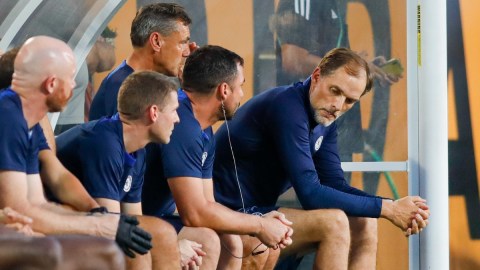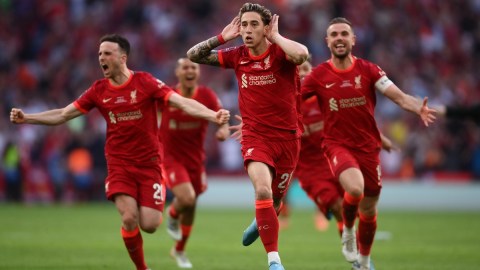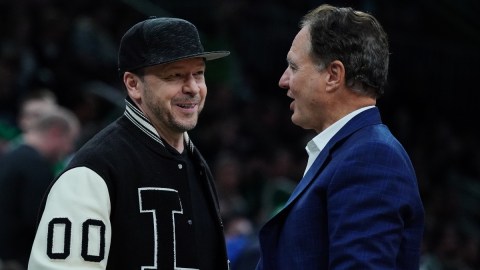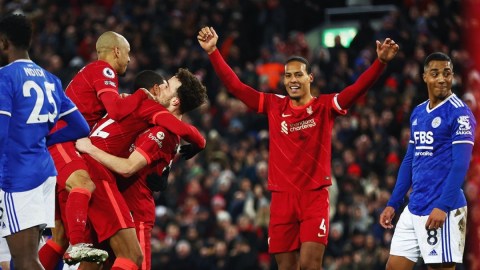 A cloud, chock- full of risk and vulnerability, has followed Demba Ba every step of his professional soccer career, and the trained eyes of Europe’s soccer clubs have seen it.
A cloud, chock- full of risk and vulnerability, has followed Demba Ba every step of his professional soccer career, and the trained eyes of Europe’s soccer clubs have seen it.
Ba has paid a heavy price for it, but his unstoppable rise could change how clubs decide which gambles to take and which ones to avoid.
The Senegalese striker’s story is one of risk and reward. He’s assumed most of the former and is set to reap the largest share of the latter.
Ba didn’t reach this point — joining Chelsea FC, the reigning champion of Europe — by himself. His family, friends, advisers and other clubs have helped him manage the risk. They stand to benefit from his success as well.
The cloud over Ba has taken many forms and changed over time. As a teenager, many wondered if he had the ability to make it as a professional soccer player in Europe. At least six clubs in two countries declined to sign him before he eventually landed a spot on a team in France’s lower leagues.
He played for three clubs in France’s fourth and third divisions before joining Mouscron in the Belgian first division. Success in Belgium earned him a 2007 move to Hoffenheim, an up-and-coming club in Germany’s second division. It was there that he answered questions about his ability, but new ones concerning his durability arose.
Ba suffered a broken left leg in 2006, and doctors inserted a pin in his leg to stabilize the area. He underwent surgery in 2009 to remove the pin, but the ligaments in his left knee were damaged during the procedure. He recovered from the injury, returned to the field and continued to shine for Hoffenheim. By the end of 2010, higher-profile clubs wanted to sign him.
The physical exam is one of the final pieces of any transfer. They are mere formalities for most players, but they have become dreaded and defining moments in Ba’s recent career. The knee problem caused him to fail physicals at Stoke City and Stuttgart, shelving multimillion-pound transfers. Since then, clubs have been unable to insure Ba’s contract because of the knee issue. Clubs that signed him did so on terms that guaranteed him little money (relative to his overall compensation and contribution to the team).
But Ba was determined to leave Hoffenheim and make it to the top. He “gambled” and joined West Ham on a “pay-as-you-play” contract in January 2011. Included in that contract was a clause that allowed him to leave for free if the club was relegated from the Premier League. When West Ham went down, he activated the clause and moved to Newcastle on a free transfer. His Newcastle contract was a partial “pay-as-you-play” deal, and it too included a release (reward) clause. He could move to another club for £7 million ($11.4 million) — a small fee for a player who had proven his ability to score goals in England’s Premier League.
At each step in Ba’s recent career, clubs saw Ba’s injury risk and protected themselves financially. Ba accepted this as a fact of life, but in return for assuming the risk, he retained ability to determine his own future. The release clauses exposed clubs to a new kind of risk — losing a key player for a fraction of his true value.
Ba was not a well-known player when he arrived in England two years ago. Things have changed, as only Wayne Rooney and Robin van Persie have scored more Premier League goals than him since then. He scored seven goals in 12 games for West Ham. He scored a further 29 goals in 54 games for Newcastle. The 13 league goals he scored for Newcastle this season represent just under half of the club’s total. Newcastle manager Alan Pardew spoke glowingly about Ba throughout the months-long transfer saga, adding that Ba joined Chelsea with the club’s “blessing.”
Ba’s value skyrocketed, and his advisers have been shrewd enough to capitalize on it. Critics attach labels like “mercenary” to Ba’s name and accused his advisers of behaving like “sharks.” They may be right, but being a “mercenary” isn’t always a bad thing. Anyone who works for a living does so to earn money, from the bus driver to the soccer scribe. It may not be the only motivator, but it’s certainly one of them.
Ba plays professional soccer not only because he loves the game, but also to support himself and his family — one that includes seven siblings. He also supports families in the Senegalese villages from which his mother and father hail. These people were in his life when he was kicking a ball around the suburbs of Paris. They were there when club after club rejected him. They are there now that he has signed a three-and-a-half year, £80,000-a-week contract with Chelsea which, coincidentally, is less than half of what Rooney and van Persie earn.
Ba’s payday is a community payday, and it should be. His community remained committed to him when German and English clubs were shying away from the player with a cloud lingering over his head. Ba draws strength and inspiration from his family and the Islamic faith it practices. They helped him cope with rejection and vulnerability, driving him forward on a daily basis. Why shouldn’t the family breadwinner share his fortune with the ones who walk alongside him?
Like any fear, much of Ba’s perceived risk has been an illusion. Despite feeling constant discomfort in the injured knee, Ba only missed 17 games in seven seasons. He never missed a game or practice session at Newcastle, and the club was willing to make him its highest-paid player if he signed a new contract. The contract he signed with Chelsea closes that gap between Ba’s perceived and actual vulnerability to injury. The insurance companies will disagree, but the reality of his injury history suggests his injury risk is the similar to other players’. Chelsea has decided to pay him accordingly.
Chelsea has assumed the risk, and it stands to gain the rewards. It is getting a striker with power, pace and precision in front of goal. Ba fills the immediate need of a goal-scorer to compete with Fernando Torres, pushing each other to greater success. The modest transfer fee and contract are a pittance compared to gambles of Chelsea’s past. The risk on Ba’s form and fitness look decidedly low compared to the ones involved with Adrian Mutu, Andriy Shevchenko, Fernando Torres and others.
Ba’s story is not complete. The Chelsea move is only the start of a new chapter. He’s 27 and on a team that is competing for trophies. The faulty dial has been fixed, and Ba must raise his game to a new level if he wants to close the earnings gap between himself and his goal-scoring peers.
Have a question for Marcus Kwesi O’Mard? Send it to him via Twitter at @NESNsoccer, NESN Soccer’s Facebook page or send it here. He will pick a few questions to answer every week for his mailbag.



